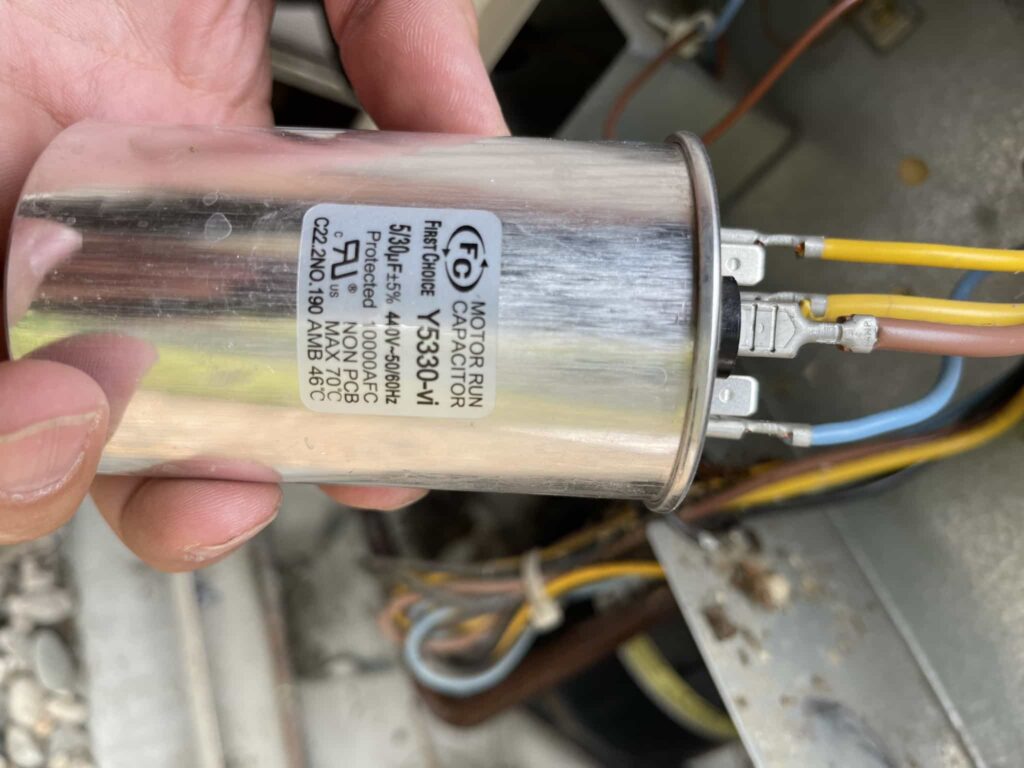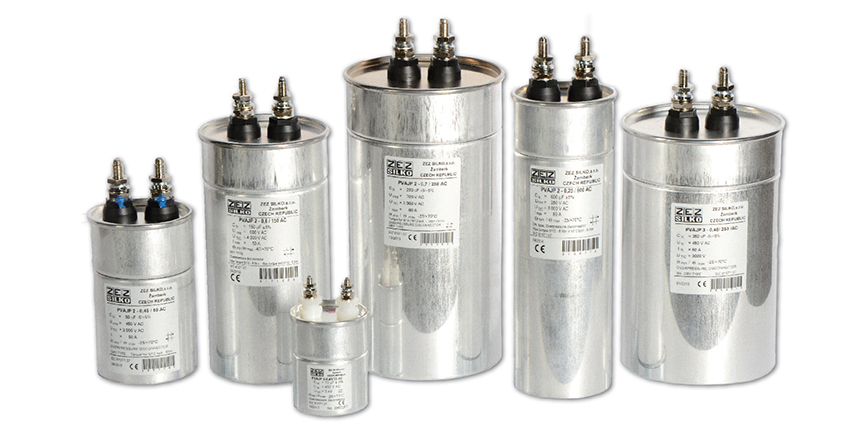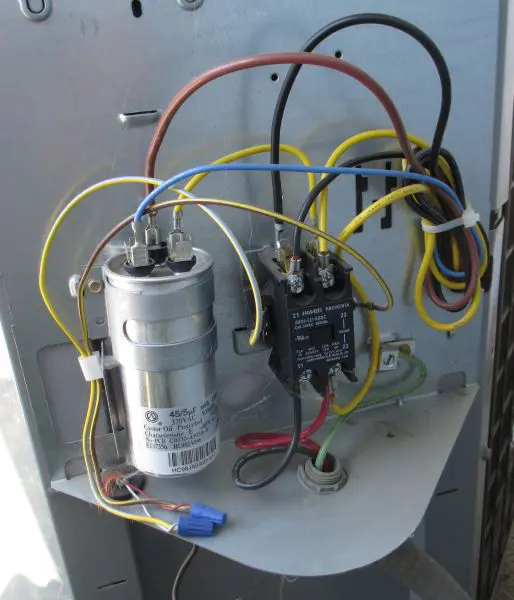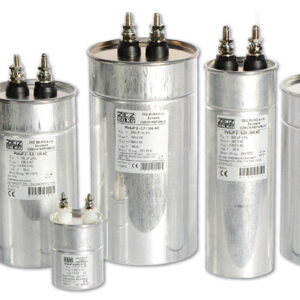Introduction to AC Capacitors
Basic Definition of an AC Capacitor
An AC capacitor is a crucial component in many electronic devices, and its primary role is to store electrical energy temporarily. Think of it as a small battery within your appliance that stores and releases electrical energy. Unlike a standard battery that provides a constant and direct current, an AC capacitor releases its stored energy intermittently, delivering an alternating current.
Importance of Capacitors in AC Systems
Capacitors play an extremely significant part in AC systems. Their role in the AC unit is for starting up the motor and maintaining a constant flow of electricity throughout its operation. If your capacitor fails, the motor may not start or run efficiently, leading to A/C system failure.
Whether it’s to enhance the power factor or to provide voltage boost to get an electrical motor over its initial start-up torque, capacitors are integral in an AC system. Understanding the capacitor’s role will help you troubleshoot efficiently when your AC system doesn’t function effectively. It’s important always to ensure that your AC capacitor is in good working condition for optimal performance of your devices.
Understanding the Role of An AC Capacitor
An AC capacitor, often found in your air conditioning system, holds a key role in ensuring your system runs efficiently. This small but crucial component stores and releases electrical energy to help start and run the motor.
How an AC capacitor functions
An AC capacitor functions by storing an electrical charge and releasing it when the air conditioning system needs a boost to continue running. As an AC capacitor ages, it may not hold as much charge as it once did. When this is the case, your AC system may not have the power it needs to properly function.
AC capacitor and power factor correction
Another key function of the AC capacitor is power factor correction. In simple terms, your AC capacitor helps to balance the power that flows in and out of your system. This ensures that your AC unit operates at its optimal power efficiency.
Importance of capacitance in AC capacitors
The amount of energy an AC capacitor can store, known as capacitance, is an important measurement. A capacitor with low capacitance will require more power to function, resulting in higher energy costs. Therefore, regularly checking the capacitance can ensure your AC system is operating effectively.
So, understanding the role of an AC capacitor can help you maintain your AC system’s efficiency and longevity.

This image is property of phyxter.ai.
AC capacitors are a crucial part of your air conditioning system. They store and release electrical energy during the cooling process. The capacitors ensure your AC unit runs efficiently and constantly. There are several types of AC capacitors, each with its unique functionality.
Paper Capacitors
Paper capacitors are named for their dielectric material – paper soaked in oil. They have a low capacitance value and are typically used in low-voltage applications. Their reliability and low cost make them a common choice in the HVAC industry.
Electrolytic Capacitors
Electrolytic capacitors are known for their polarized nature. They are used where high capacitive density is required, meaning you need loads of capacitance in a small volume. They are mainly used in power supply filtering.
Ceramic Capacitors
Ceramic capacitors can withstand high voltages and perform well in high-frequency electrical circuits. Their compact size and durability make them ideal for AC units that often undergo strenuous conditions.
Film Capacitors
Lastly, film capacitors are known for their longevity. Among the durable capacitors, they are used in critical applications where reliability is essential.
Remember, understanding the type of AC capacitor used in your air conditioning unit can help you troubleshoot issues and maintain your system efficiently. Knowledge is key in extending your unit’s lifespan and ensuring a cool, comfortable environment in your home.

This image is property of dolphincooling.com.
The AC capacitor is an essential component of your air conditioning system. Often underestimated, the capacitor’s role is to store and supply the electrical energy needed for the system’s fans and motors. If something goes wrong with the capacitor, your air conditioning won’t operate efficiently or might not work at all. Thus, recognizing the signs of a failing AC capacitor can save you from a sweaty predicament.
Abnormal noises from the AC unit
When a capacitor starts to fail, you may hear strange noises coming from your AC unit. These could include humming, buzzing, or clicking sounds. These noises often indicate that the capacitor is struggling to supply sufficient power to the AC unit’s motor.
Unusual power consumption
If your AC unit is consuming an abnormal amount of power, it could be a sign of a failing capacitor. A malfunctioning capacitor often can’t hold or evenly distribute the required energy, causing the system to draw more power to compensate.
Decreased cooling efficiency
Lastly, a common sign of a problematic capacitor is a noticeable decrease in cooling efficiency. If your rooms aren’t getting as cool as they used to, or if it’s taking longer for the AC to cool them down, this could mean that your capacitor is not operating at its full potential. By identifying these signs early, you can prevent further damage to your AC system and maintain a comfortable environment in your space. The AC capacitor plays an integral role in the functioning of your air conditioning unit. Essentially, these handy little devices store and release electrical energy to help start and keep your AC unit running smoothly.
Maintenance and Care for AC Capacitors
Regular Inspection of the AC Unit
Regular inspection of your AC unit is necessary to ensure its AC capacitor is in good condition. A faulty capacitor can disrupt the functioning of your AC, causing it to malfunction or not start at all. Therefore, it’s essential to inspect your unit regularly to avoid untimely breakdowns.
Significance of Proper Cooling on AC Capacitor Lifespan
Heat is the number one enemy of all electronic devices, including AC capacitors. When the temperature rises, the lifespan of your AC capacitor can substantially decrease. Therefore, maintaining an optimal temperature around your AC unit can significantly lengthen the life of its AC capacitor. Keeping your AC unit clean and debris-free can aid in proper cooling.
Appropriate AC Capacitor Storage
Lastly, storing your AC capacitors in a cool, dry place, away from any heat source, and in a non-condensed environment can help ensure a longer lifespan. It prevents any potential thermal and moisture damage, contributing to the smooth functioning of the AC unit. An AC capacitor is a crucial component of your air conditioning system. It acts as a temporary storage unit for electricity, allowing your AC to regulate the flow of electrical energy. This piece is pivotal for the efficient functioning of your AC unit, as a faulty capacitor can lead to severe performance issues.
How to Replace an AC Capacitor
Safety Precautions Before Replacing an AC Capacitor
Before you dive into the process of replacing your AC capacitor, it’s vital to prioritize safety. Make sure the power supply is completely disconnected. You should also ensure that you’ve discharged the current AC capacitor. Always wear the relevant safety gear to prevent any hazards.
Steps to Replace an AC Capacitor
Replacing your AC capacitor involves the removal of the old capacitor and the installation of the new one. You’ll have to make sure that the new capacitor you are installing is the correct one for your AC system. This process may involve connecting wires and ensuring they’re securely fastened.
Potential Issues During Replacement
During the replacement, ensure to tread carefully as incorrect installation can lead to further problems. Also remember to monitor your AC’s performance after the switch, as faulty or incompatible components can lead to inefficiencies. As always, if you’re uncertain, it’s best to consult with a certified professional.

This image is property of serviceemperor.com.
If you’re someone who’s ever dealt with an air conditioning unit, you’ll certainly have come across the term ‘AC Capacitor’. AC Capacitors play a crucial role in your air conditioning system; acting as a temporary storage for electrical energy, they help start the motor and maintain a consistent flow of energy while the system is running.
Common Myths about AC Capacitors
It’s common to encounter some misconceptions about the role and nature of AC capacitors.
Myth about AC capacitor being an energy source
One common myth is considering the AC capacitor as an energy source. This isn’t true. An AC capacitor doesn’t generate energy; rather, it temporarily stores and regulates it.
Misconception regarding AC capacitor lifespan
Another misconception revolves around the capacitor’s lifespan. While good maintenance can extend its life, just like any other device, it’s bound to degrade over time, leading to poor AC performance.
Assumption about capacitor replacement
Along with age-related degradation, the assumption that you can replace your AC capacitor with any capacitor is incorrect. The replacement capacitor must match the specifications of the original one to ensure efficient operation of your AC unit.
In this informational post, you have learned the fundamental role of an AC capacitor and debunked some common myths surrounding it. Understanding these aspects can help you maintain your AC unit better. An AC capacitor is a vital component in your air conditioning system. Its fundamental role is to store and release electrical energy during the operation of the system. It is responsible for starting the motor and keeping it running by modifying the current’s phase angle thus ensuring the system’s efficient energy use.
Recap on the role of an AC Capacitor
In essence, the AC capacitor acts like a battery. It’s the boost that gets the motor running and maintains a steady flow of energy to keep it going. It plays a crucial role in the effective power supply and energy management of your air conditioning unit. A faulty capacitor can compromise your AC’s performance, incurring increased power use and even system breakdown.
Future developments in AC capacitor technology
Innovations in AC capacitor technology aim to increase its efficiency and lifespan. New types of capacitors, such as supercapacitors and solid-state capacitors, are highly efficient, durable, and have longer lifespans. They promise to overhaul the energy consumption patterns of our appliances for the better.
Conclusion: AC Capacitors’ Significance
A proper understanding of an AC capacitor’s function and importance will help you maintain your system optimally for better energy management, cost reduction, and prolonged service life. Make sure to keep a tab on upcoming technological advancements to enjoy even more benefits in the future.

